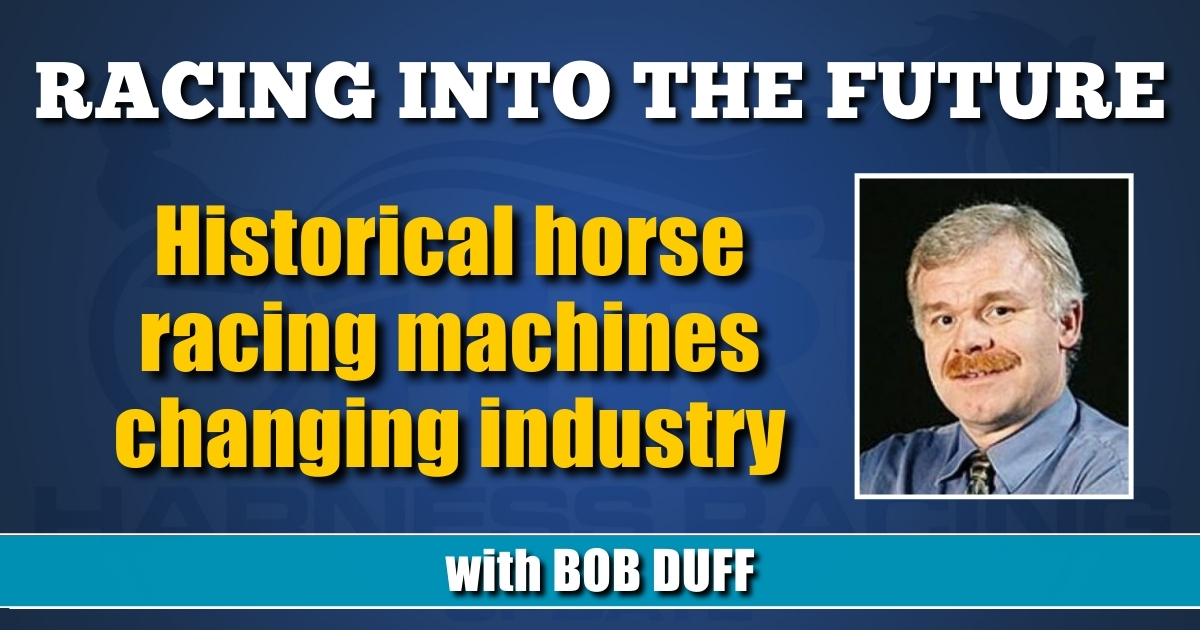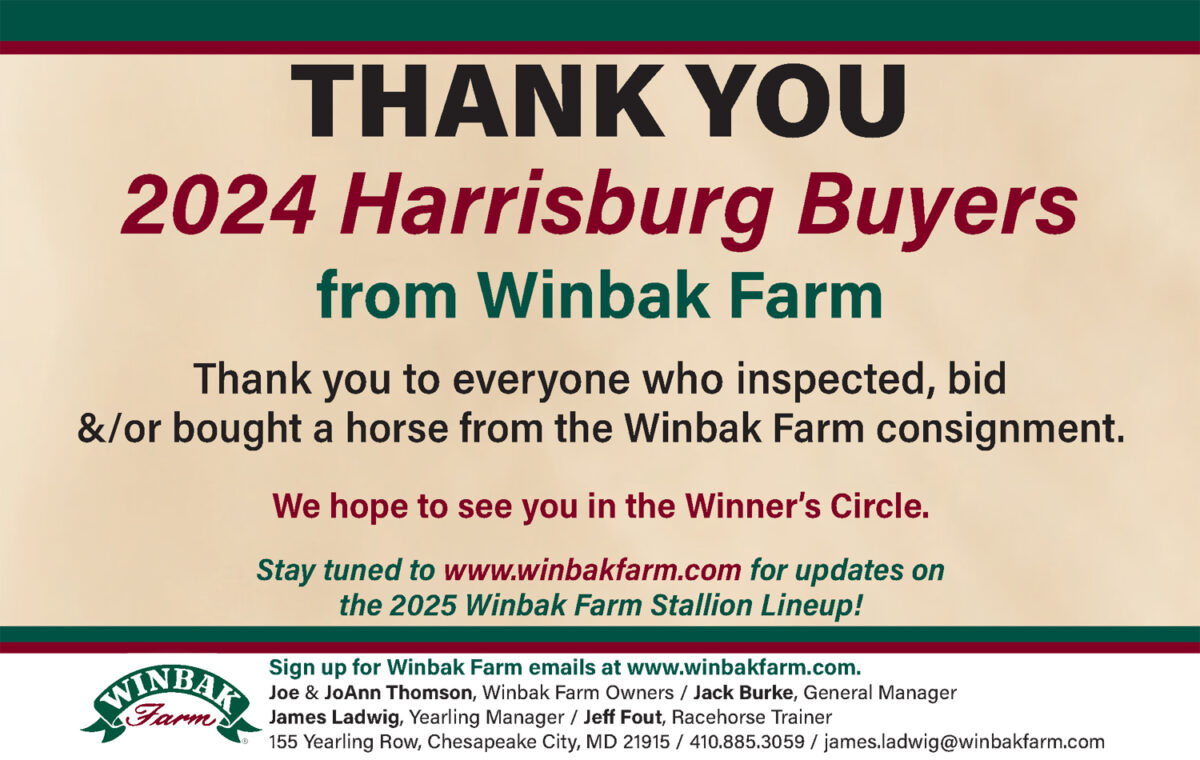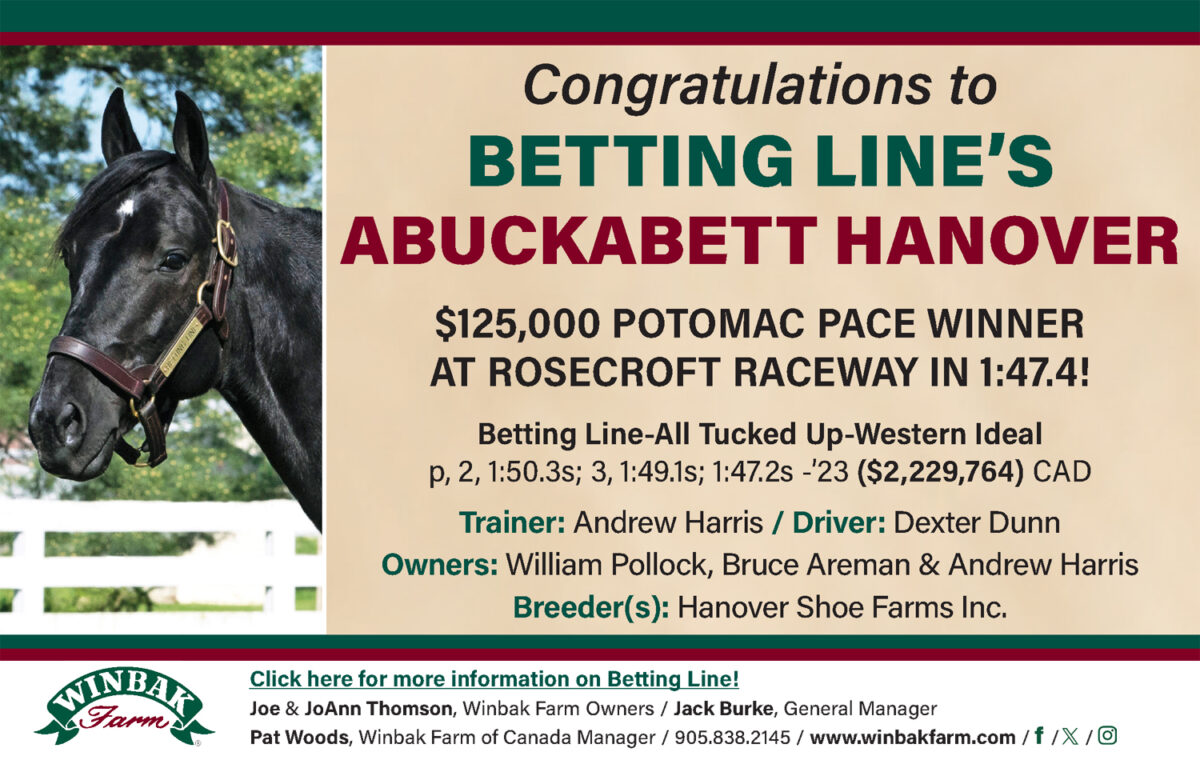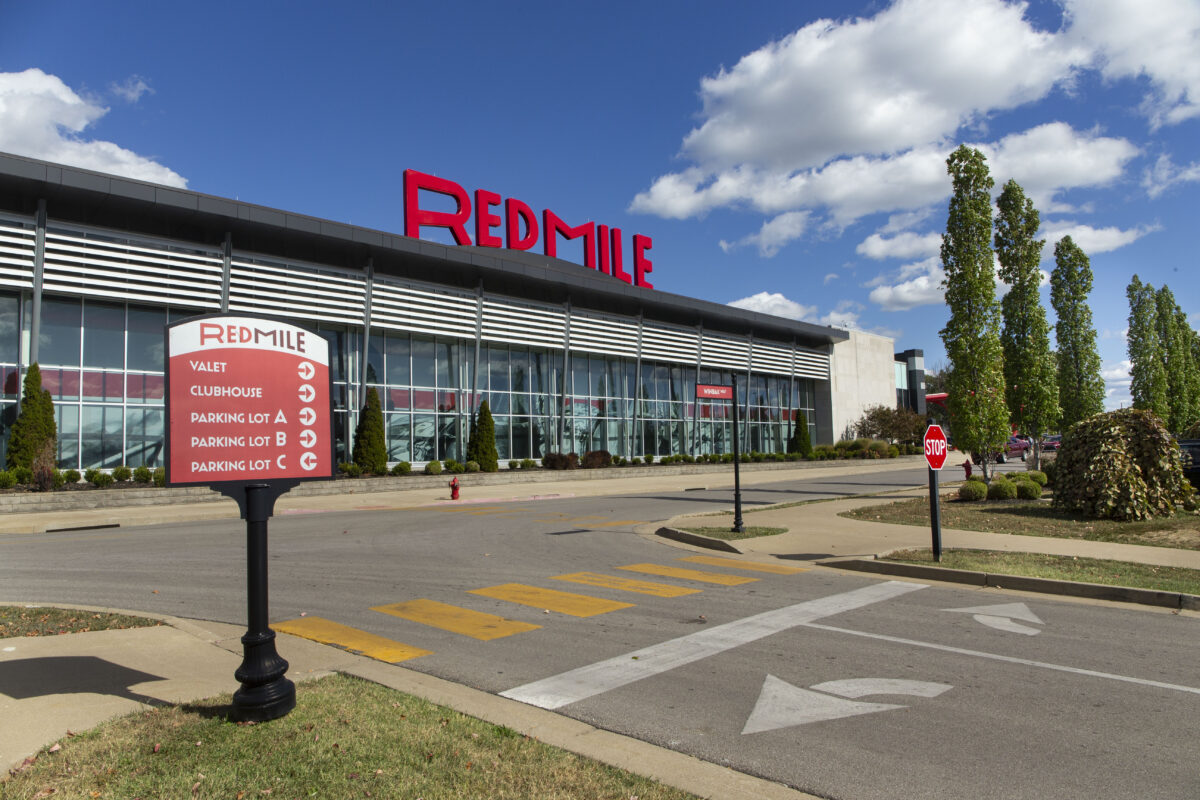Historical horse racing machines changing industry
by Bob Duff
There’s an old theory that goes something like if we don’t learn from the past, we won’t have much of a future.
In Kentucky, they are learning that the past can give the sport of harness racing a much brighter future.
“Certainly, it’s a story worth telling,” said Ken Jackson of the Kentucky Harness Association.
The phrase game changer is attached to differentiating factors far too easily. In this case, though, it is a more than appropriate descriptive.
The introduction of historical horse racing systems (HHR) in the Bluegrass State has taken an industry that was on life support and infused it with life-giving oxygen.
“I’d call it a life saver, or a life preserver for the industry, however you want to say it,” said Gabe Prewitt, vice president of racing and sports wagering operations at The Red Mile, of the impact of historical horse racing machines in Kentucky. “We were in very hard times.
“Even at The Red Mile, we got down to 12-to-14 overnight dates at one point. It has been a great revitalization for the industry.”
WHAT ARE HISTORICAL HORSE RACING MACHINES?
Though they look similar to slot machines, historical horse racing machines function much differently. Outcomes in slot machines are determined via a random number generator. With historical horse racing machines, the outcomes are determined from actual past horse races.
These machines contain a database of footage from as many as 60,000 previously-contested horse races going back to the 1990s. This historic data is randomized and anonymized. While bettors do get access to charts, stats and past performance data, they will not be able to view the names of the horses, trainers or drivers/jockeys involved in the race, or any other potential identifying factors, until after they have placed a bet on the race. They operate under the same pari-mutuel wagering system as a regular horse race.
Historical horse racing machines originated in Arkansas. Oaklawn Park was the first track to offer them in 2000. Kansas, in 2022, was the most recent state to legalize them.
Other states offering wagering through HHR machines include New Hampshire, Virginia and Wyoming.
HHR A BOON TO INDUSTRY IN KENTUCKY
However, when it comes to the standard-bearer for the type of impact that historical horse racing machines can make on a state’s horse racing industry, Kentucky is the blueprint everyone is studying.
For instance, at The Red Mile, there is a distinctive HHR parlor containing more than 900 of these machines. The track recently launched its 2024 harness racing season with 33 dates on the schedule.
“It’s a great tool,” Prewitt said. “The machines have come a long way, too. The level of the machines from four-to-five years ago, they’re vastly improved.”
After years of court battles, Kentucky went full bore with HHR machines in 2020. Since they operate via pari-mutuel wagering, the same as regular horse racing, it was determined that they are legal to operate in a state where slot machines remain outlawed.
In 2023, some $693 million was wagered in the Bluegrass State via HHR machines. Of that revenue, 91 per cent is returned to the bettors. A portion of the remaining pool of cash benefits Kentucky harness racing through allotments given to the Kentucky Breed Development Fund.
These proceeds benefit breeding operations, the Kentucky Sire Stakes, and fair racing, as well as the state’s three standardbred tracks: The Red Mile, Oak Grove and Cumberland Run. For instance, in 2024, a 4-year-old division was added to the KYSS.
Other standardbred jurisdictions, including major areas such as New Jersey and Ontario, are watching these developments with more than a passing interest. It’s also convincing players in the harness racing industry that Kentucky might be a good place to put down roots.
“Over the course of the last two-to-three years, it seems like I can’t go a week without hearing about someone in the industry purchasing a major piece of property here in central Kentucky,” Prewitt said. “It’s really great to see how it’s bringing the breeding side of the industry back, the farms, mares in the state.
“Some of the standardbred industry is making a home in Kentucky.”
Coupled with the 2023 legalization of sports betting — The Red Mile is home to a Caesars Sportsbook — Kentucky is truly feeling a revitalization of the state’s harness racing product.
“It really does and it sort of has a different demographic,” Prewitt said of the advent of sports betting. “The sportsbook is introducing our facility to a younger audience. Anything we can do to reinvent the facility. We’re a racetrack first and foremost, but an entertainment facility on top of that.”
Known primarily in horse racing as the state that is home to the Kentucky Derby, the standardbred industry in Kentucky suddenly couldn’t be healthier.
“Just the culture here in Lexington, you can feel it,” Prewitt said. “It’s always been a hub for thoroughbreds but we’re bouncing back.
“It’s got a lot of momentum right now. It’s all sort of come to fruition.”

















